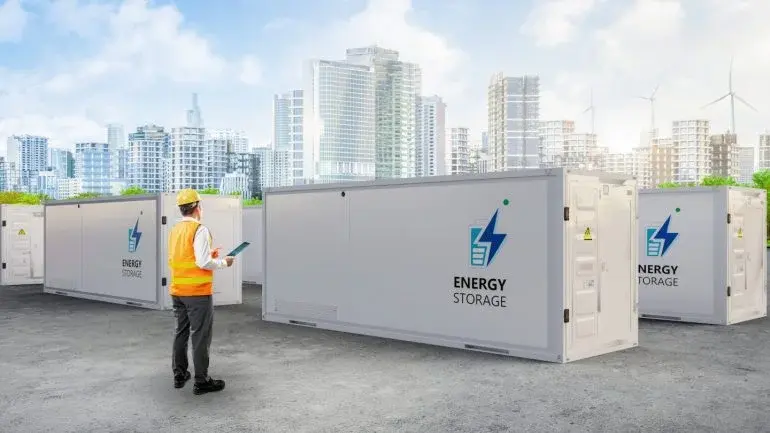
22.05.2024
Commentary
The Critical Material TRACE Act
On April 30, 2024, Representatives Paul D. Tonko (D-NY) and Garret Graves (R-LA) jointly introduced bipartisan legislation in the U.S. House of Representatives entitled, the Critical Material Transparency and Reporting of Advanced Clean Energy (Critical Material TRACE) Act.
This legislation seeks to establish a traceability program at the Department of Energy (DOE) that will support government and the private sector in developing software systems (i.e. digital identifiers) and processes (i.e. interoperability standards) that will promote visibility into critical mineral and material supply chains for energy transition technologies, such as batteries.
These digital tools and processes will help industry more accurately source critical materials in a sustainable, responsible, and resilient manner, as well as meet global legislative requirements including the Inflation Reduction Act’s Clean Vehicle Tax Credit (30D) content requirements for critical minerals and battery components and Europe’s Battery Regulation requiring proof of embedded carbon, responsible sourcing and recycled content.
Countries like India, Japan, South Korea, and Canada, to name a few, are also bolstering national policies when it comes to transparency for clean energy technology supply chains, encouraging investment and increasing the competitiveness of domestic industries.
Building a Critical Material Traceability Program
If passed into law, this DOE-led public-private initiative would help to catalyze the development of robust data infrastructure, advanced technologies, interoperable systems, and effective communication channels that help to promote traceability technologies across industrial supply chains.
The program would bring together a myriad of companies across energy and transportation supply chains to develop the best pathways to implement digital traceability across industry.
This new effort would mark an advancement from traditional methods of supply chain due diligence such as annual life-cycle analyses (LCAs) and paper-based documentation, which capture supply chains in a static and limited basis rather than in a dynamic manner.
Digital tracing is necessary for manufacturers to be able to identify supply chain anomalies and prove immutable records of provenance, activity, and compliance across supply chains in near real-time.
With the passage of the EU’s Battery Regulation, Europe has already progressed a tremendous amount of work with industry to develop digital supply chain traceability programs for batteries. Most notably, the German government funded “Battery Pass” consortium, a three-year project with world-class market leaders, is working to develop the content and technical standards for an EU qualifying battery passport, as well as demonstrate the integration of such data into a shared data space.
Circulor is the technology lead for the Battery Pass project and together with partners such as Acatech (Germany’s National Academy of Science and Engineering), AUDI, BASF, BMW, Fraunhofer IPK, SYSTEMIQ, and Umicore, have achieved several milestones, including guidance and recommendations for technical implementation.

Complementary to the EU Battery Regulation is the Ecodesign for Sustainable Products Regulation (ESPR) which follows the same blueprint and will expand Digital Product Passports to products like iron and steel, aluminum, tires and electronics.
Why is TRACE important?
The introduction of the TRACE Act could not have come at a more opportune time.
With the finalization of the 30D Clean Vehicle Tax Credit regulations this month in the U.S., automakers are now required to demonstrate increasing percentages of critical minerals and battery components sourced from the U.S. and other certain Free Trade Agreement (FTA) countries over the next several years in order for their cars to qualify for the $7,500 consumer tax credit.
30D mandates that qualified manufacturers provide the Internal Revenue Service (IRS) with robust documentation where they must prove that their supply chains comply with the content requirements.
The guidance also makes clear that automakers must continuously monitor their supply chains on an “ongoing basis” to ensure that vehicles are indeed in line with the credit’s requirements. The only way to do this effectively is through implementing digital supply chain tracing technology.
In addition to proving out the eligibility requirements as laid out in 30D, there are several other U.S. programs that either require, or would benefit from a better understanding of, digital supply chain traceability.
To name a few, these programs include:
- Department of Transportation's (DOT) Buy America/Buy American requirements
- Department of Energy's (DOE) battery grant program requirements
- Environmental Protection Agency’s (EPA’s) work on battery labeling and recycling
- Securities & Exchange Commission (SEC) climate-related disclosure requirements
- Commodity Futures Trading Commission’s (CFTC) work in carbon markets
- Department of Homeland Security (DHS) and the U.S. Customs and Border Protection (CBP) import requirements
- Department of Defense (DOD) disclosure requirements for rare earth elements
Globally, as previously mentioned, the digital tools and processes required by the TRACE Act will also help industry gain market access to other regions and meet growing global regulatory requirements.
As digital tracing and digital identifiers are increasingly recognized as the industry standard to achieve enhanced accountability and transparency, the passage of the TRACE Act can play a key role in understanding how digital identifiers can be embedded into production processes and implemented at scale, both in energy transition technologies and other sectors.
Now, the Federal interagency and industry will work together to develop a better understanding of what effective digital traceability solutions can look like for our energy and transportation supply chains.
“Circulor is pleased to support the Critical Material Transparency and Reporting in Advanced Clean Energy Act of 2024 (TRACE Act) as introduced by Representatives Paul Tonko (R-NY) and Garrett Graves (R-LA)”, says Doug Johnson-Poensgen, CEO of Circulor. “Full material traceability is essential to building clean, resilient, and secure supply chains, particularly in the battery and critical materials sectors. This bill will enable a public-private program led by the DOE, to develop the data, technology, interoperability, and communication channels that will enable critical material supply chain traceability at scale in the U.S. Digitalization of supply chains is rapidly taking the place of annual life-cycle analyses (LCAs) and paper trails, and it is essential for the U.S. government to convene the private sector ecosystem in order to develop and implement effective traceability technology and systems. Given our experience and track record in implementing traceability programs across our vast industrial supply chain network, we look forward to supporting this legislation, and ultimately this program at DOE.”






![Acculon RA Circulor - website image.001[44].png](/_next/image?url=https%3A%2F%2Fdecisive-wonder-fa24533282.media.strapiapp.com%2FAcculon_RA_Circulor_website_image_001_44_2720fb315d.png&w=1920&q=75)



